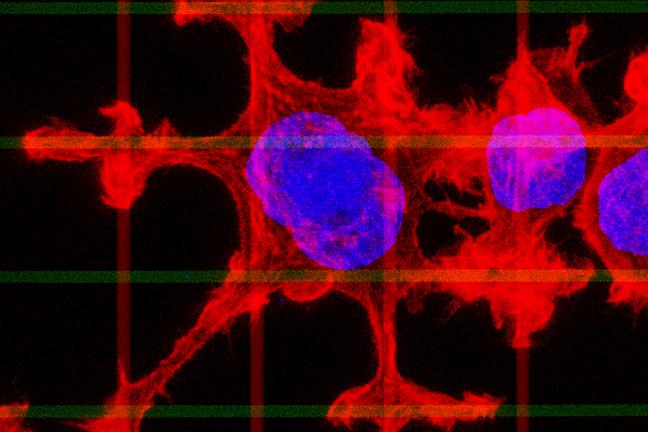Researchers at the University of Minnesota have developed a technique to stop the movement of cancer cells. When cancer moves from a primary tumor to other sites in the body, it becomes far more dangerous to the patient, and that has driven scientists to work for years to learn more about how cancer cells migrate. This work, which was reported in Nature Communications, may help create therapeutics that can prevent cancer from spreading.

When tumors grow in the body, they can create interior networks that cancer cells can use like a highway, ultimately moving closer to blood vessels and other neighboring tissues. When patients have cancerous tumors with a large number of those highways, there is a lower likelihoood they will survive the cancer. One thing that has eluded researchers, however, is knowing exactly how cancer cells are able to find and move along those highways.





